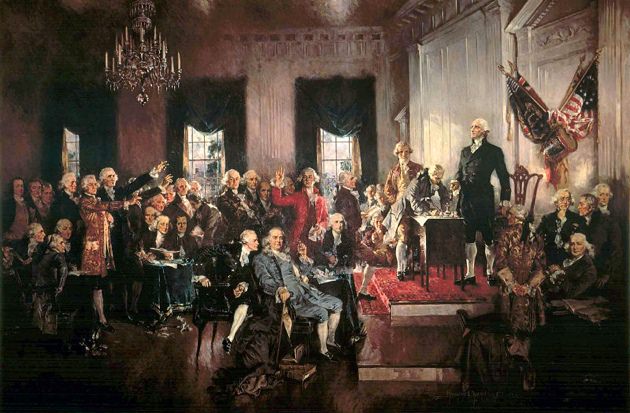Some years ago I had a brilliant student in several of my classes—the only student, in fact, I ever recommended for a Rhodes Scholarship. In the first class he took, we were discussing the Declaration of Independence, and I argued that the Continental Congress was wise in deleting Jefferson’s attack on the King of England for keeping open the slave trade. Jefferson’s original draft claimed that the King did this against colonial efforts to restrain the trade. I pointed out that some colonies (South Carolina and Georgia, for instance) were for keeping that traffic open. Virginia, it is true, had tried to put limits on the importation of slaves—but mainly because the state was suffering a surplus of them, with consequent reduction in their value. Congress was therefore eliminating an inconsistent and hypocritical attack on the King, one that falsely suggested he was foisting slavery on a people opposed to it.
My student defended Jefferson’s original draft, in ways that puzzled me. But then he came to me during my office hours and stated more clearly his problem. He said that, like his fellow Mormons, he held that the Declaration of Independence is divinely inspired—in that sense, it is part of Mormon Scripture. I asked whether the inspiration was for the original drafting or for the official publication of the Declaration. He was not sure at first; but since he said that the US Constitution was also inspired, it was hard to see how divine dictation could apply to all preliminary drafts of that work, as well as to all the state ratification procedures for enacting it. So we agreed that inspiration must be only for the final document in both cases.
The young man was learning Portuguese, to do his missionary year in Brazil, for which he left before graduation. When, after a year, he came back to complete his studies, he took more of my classes and we had further discussions. I wondered if amendments to the Constitution were also inspired. He was a little uncertain, but I think he decided they were not. That poses problems I have often thought of since. For instance, the Constitution rated a slave as only three-fifths of a person. Did that have anything to do with Mormon reluctance, in the past, to admit blacks to full equality?
Mormons have since recognized black rights, but does that violate their belief in the divine Constitution that originally limited them? Does the fact that the Fourteenth Amendment was an addition to the originally inspired document mean that God first limited black rights in a directly inspired document, and only restored them in a non-inspired amendment?
This was not a criticism of my student’s faith, and all our dealings were cordial; but I was left wondering about the theory of inspiration as a legal tool of interpretation. Will a Mormon president treat constitutional clauses as divine injunctions? If so, what grounds will we non-Mormons have for interpreting with secular arguments what is presented as God’s will? For that matter, what right will the Supreme Court have to treat the document as anything less than a divinely inspired covenant? Does the First Amendment actually separate church and state, or does that not count, since it is merely an amendment, not the original word of God? But why, then, did a mere amendment change the first inspiration that made slaves less than full persons?
Accepting the Bible, in either its Jewish or its Christian forms, raises problems enough when it is treated as divinely inspired. Do we need further entanglement in a fundamentalism of the law?


